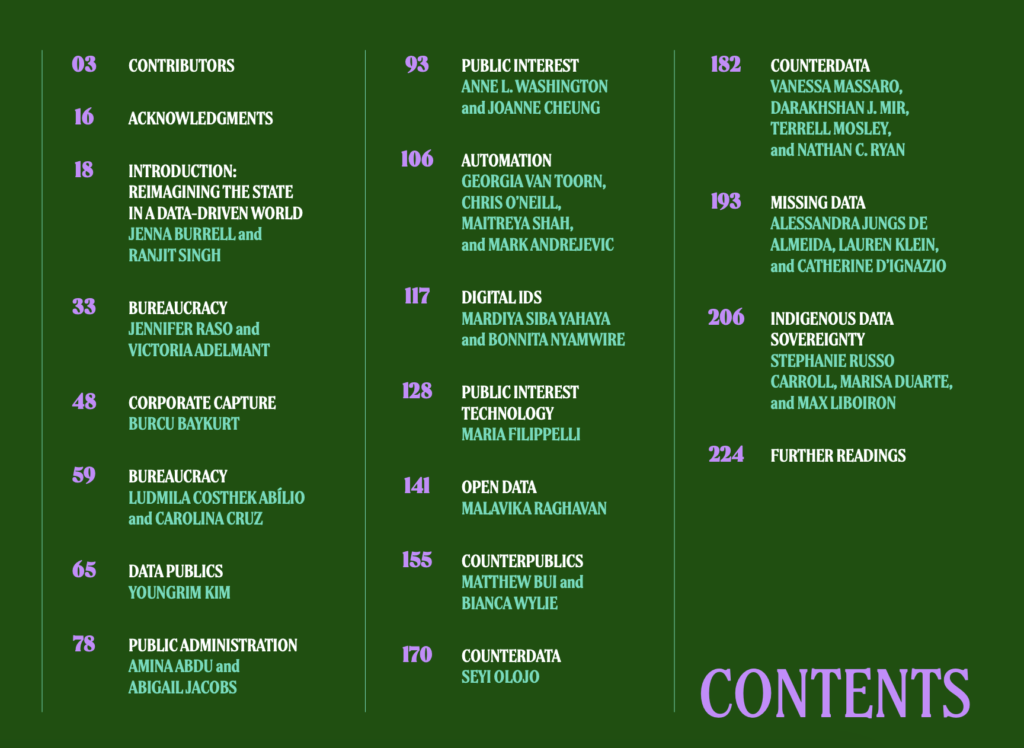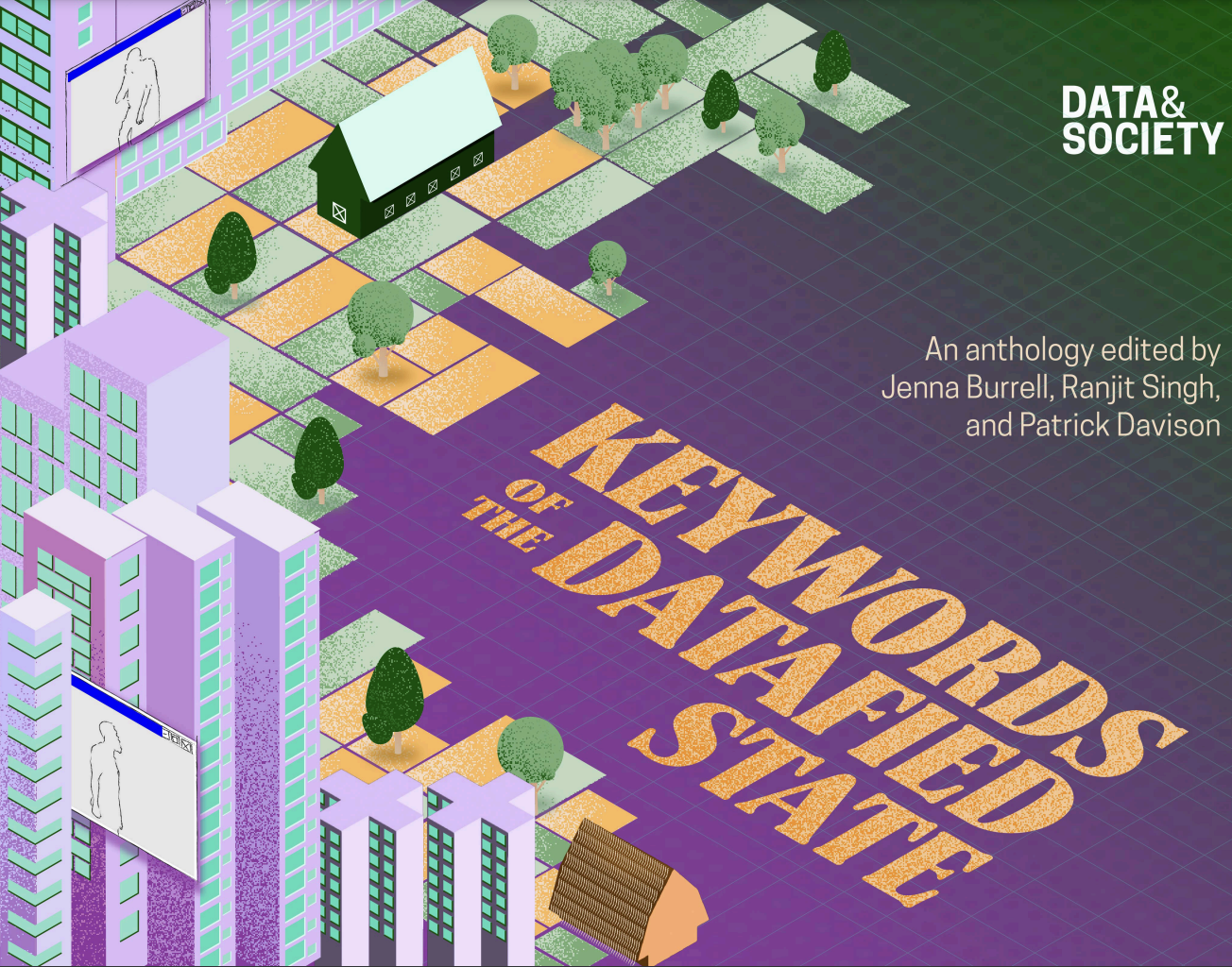“If data can be used to construct the state, it can also be used to deconstruct it.”
“It should neither be surprising nor revelatory that many civil society groups and social movements have made acquiring, analyzing, and presenting data a part of their practices of seeking justice, policy change, or simply
greater visibility. In part, they seek the legitimacy that quantification and data have achieved in the modern state. They often leverage, as Raghavan also shows, the bounty that recent open data efforts have offered in accessing government data for the sake of transparency. However, gaps in data collection are pervasive. Alessandra Jungs de Almeida, Lauren Klein, and Catherine D’Ignazio, in their contribution on missing data, move beyond the reinterpretation of official data collected by the state to call attention to under-resourced efforts to painstakingly collect data to fill gaps created by state neglect or intentional silence on critical social problems. Data is neither raw nor always available; it must be produced to become a resource for building as well as resisting the state. Data has politics that are at play
in the infrastructural processes of data collection, circulation, curation, and interpretation.”
“We hope that our readers see it as a resource for gathering their own communities to engage with the ongoing emergent challenges of contending with the datafied state and as an invitation to explore which keywords matter most to them.”
https://datasociety.net/wp-content/uploads/2024/04/DS_Keywords-of-the-Datafied-State_04242024.pdf





